Best gaming laptops of Computex 2025 - top picks from Asus, Acer, and more
Can gaming laptops finally take on desktops?
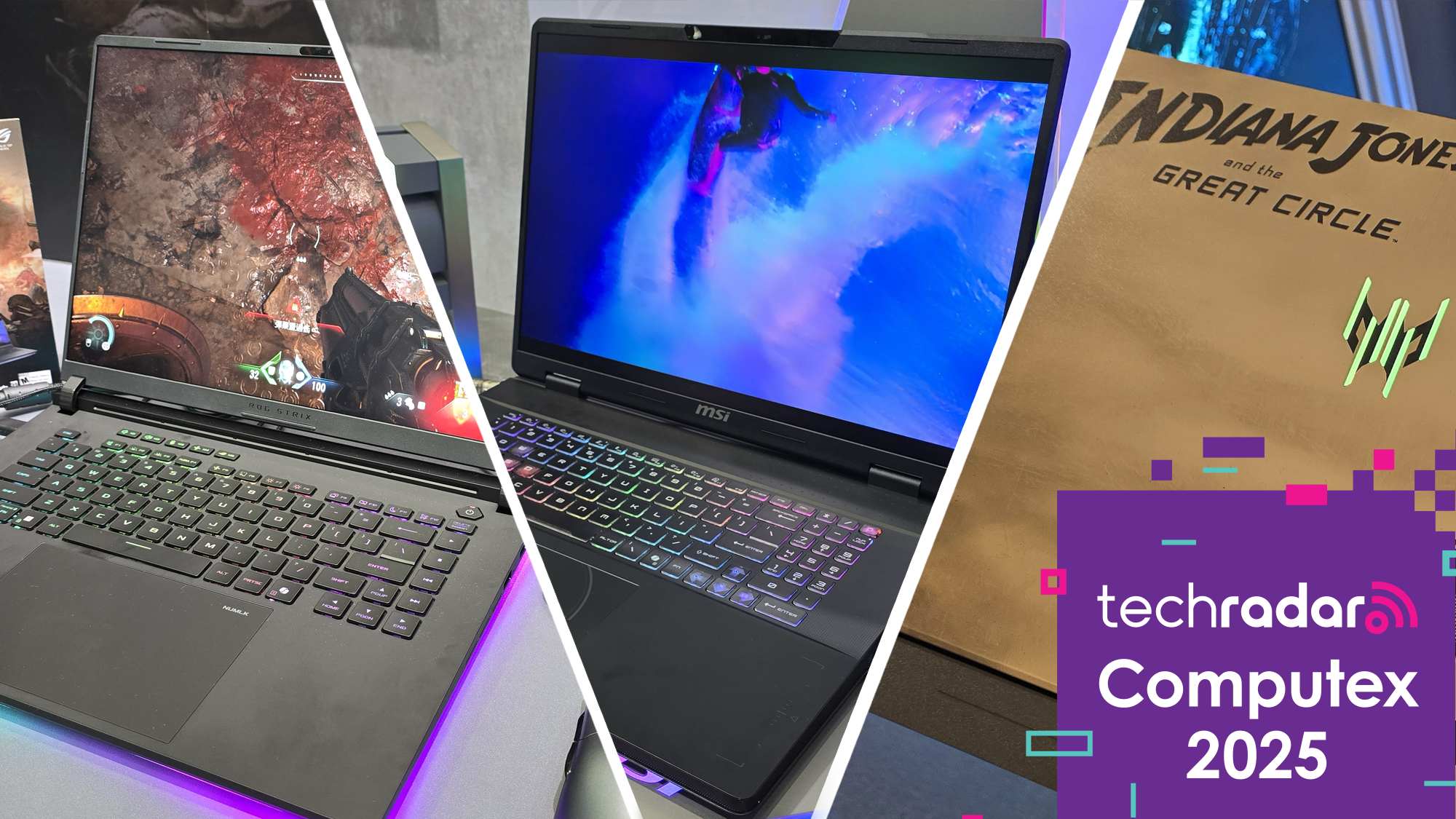
Sign up for breaking news, reviews, opinion, top tech deals, and more.
You are now subscribed
Your newsletter sign-up was successful
Computex 2025 has seen some of the biggest names in computing, including Asus, Acer and MSI, show off their latest products, and I’ve been checking out some of the devices I think will have a strong chance to appear in our best gaming laptops guide when they launch in the next 12 months.
Below, you’ll find my picks of the best gaming laptops of Computex 2025. While I was only able to spend a short amount of time with each of them, their specs (including cutting-edge mobile components from Intel, AMD and Nvidia), features and designs having given me a good idea (after nearly 20 years as a tech journalist) of whether or not these gaming laptops are going to be worth buying.
Of course, when they are made available, we’ll be fully reviewing each one to see if they are actually worthy of being included in any of our best laptops buying guides, which will include playing the latest AAA games on them. Until then, however, these are the gaming laptops I’m most looking forward to. Make sure you check out my roundup of the best laptops of Computex 2025 for my top picks of general-use laptops as well.
1. MSI Titan 18 HX AI
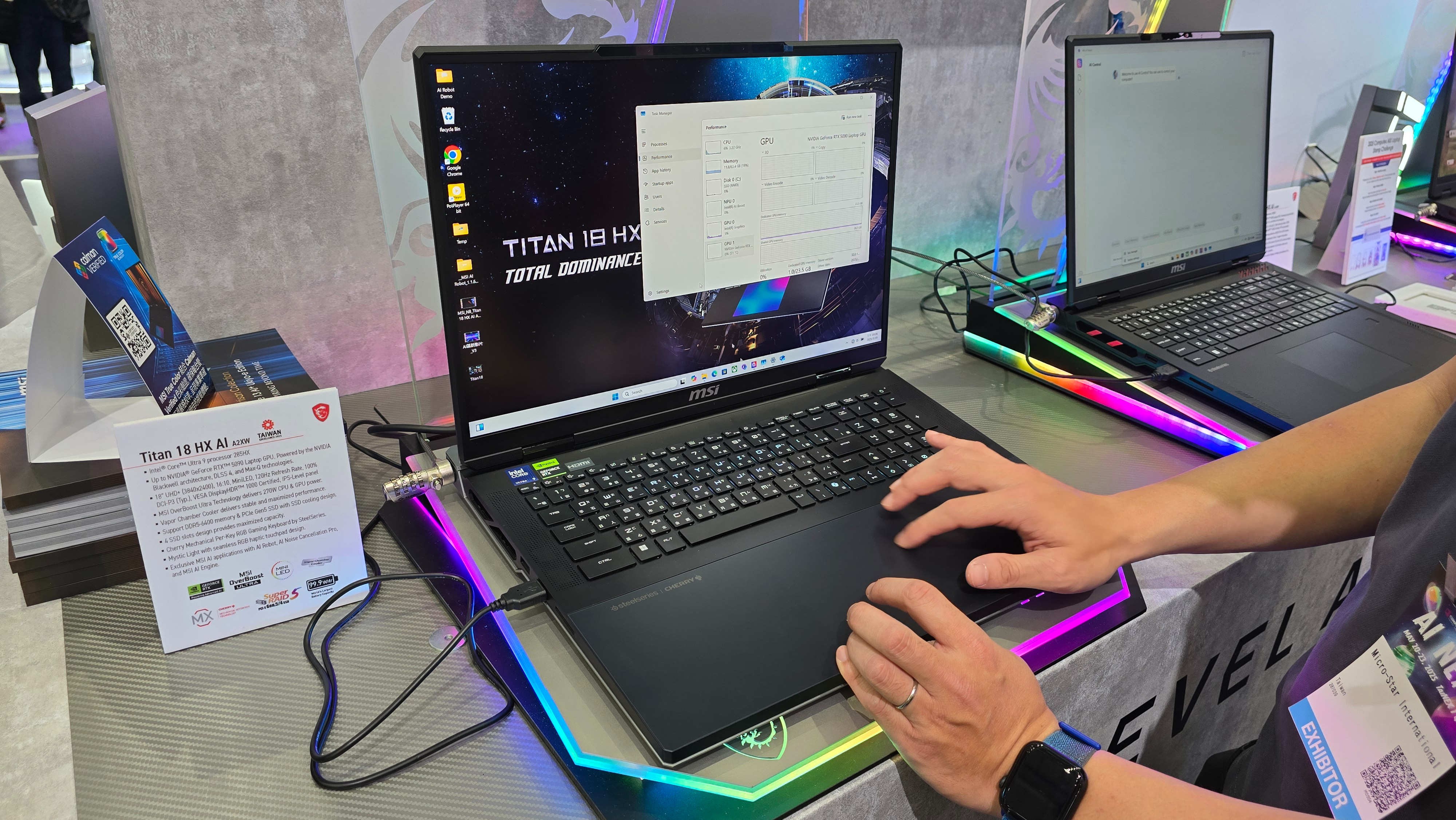
I’ve often felt that as a PC gamer, if I want the most powerful hardware on the planet to give me the very best gaming performance, then my only choice is to get a gaming PC, rather than a laptop.
However, gaming laptops like the new MSI Titan 18 HX AI, which is on show at MSI’s big booth at Computex 2025, are challenging that preconception thanks to some incredibly powerful mobile components that can give you near desktop-level performance while also remaining portable enough to carry around in your backpack.
The MSI Titan 18 HX AI features an Intel Core Ultra 9 285HX processor and up to an Nvidia GeForce RTX 5090 laptop GPU – currently the most powerful graphics card you can get in a gaming laptop.
Unlike some of the other best gaming laptops I have seen at Computex 2025, the MSI Titan 18 HX AI isn’t trying to be thin and light, and while that means this isn’t the most portable of gaming laptops, it’s still much easier to carry around than a desktop PC – and it also means MSI has had a bit more scope to put some killer features in here.
Sign up for breaking news, reviews, opinion, top tech deals, and more.
The 18-inch UHD+ screen comes with mini-LED technology and 120Hz refresh rate, and games looked fantastic. It also supports 100% of the DCI-P3 color gamut, making it an excellent choice for content creators (especially people making videos) looking for a powerful workstation.
It also features four SSD slots, giving you some decent upgrade options if you want to expand the storage. A mechanical keyboard from SteelSeries makes playing game genres like FPS (First Person Shooters) a joy, and typing up documents should feel great as well.
High tech vapor chamber cooling and MSI OverBoost Ultra Technology means the MSI Titan 18 HX AI should be able to max out its performance for long periods of time to make sure you’re getting the very best gaming performance, and the 99.9Whr battery is the largest you can get in a laptop (any larger and you’d not be able to bring it on a plane), so hopefully battery life won’t be ridiculously short, though I still wouldn’t expect more than a few hours.
If money is no object, this could be the gaming laptop for you, and could even sway a few desktop zealots like myself.
2. Asus ROG Flow Z13 (2025)
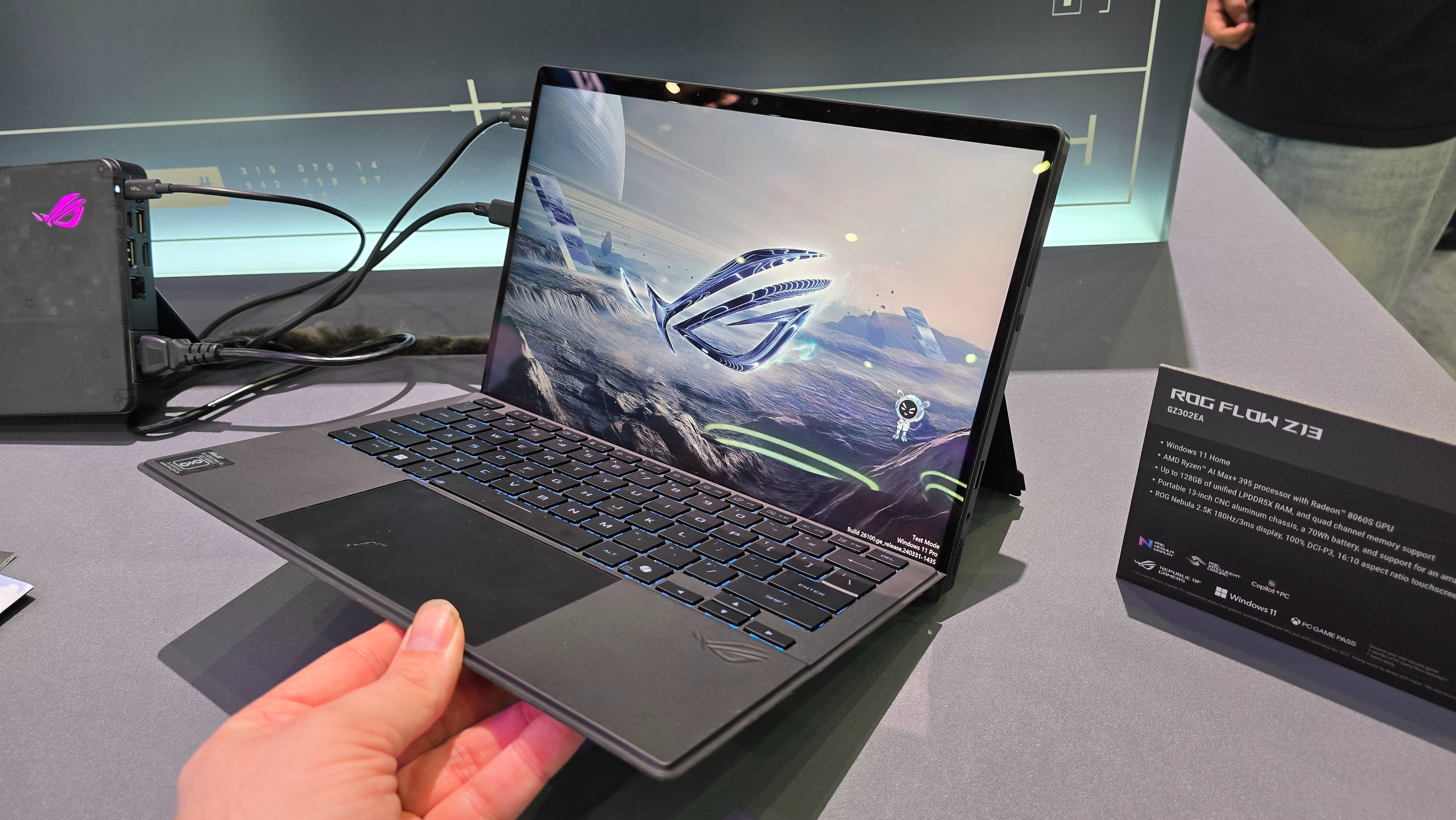
The latest Asus ROG Flow Z13 model was on display at Computex 2025, and I certainly liked what I saw as I browsed Asus’ huge stand. I’ve always been intrigued by the ROG Flow series of devices, as they are essentially very powerful tablet-like devices that can be turned into gaming laptops.
Not many laptop makers experiment with new form factors like Asus does (the company also makes innovative dual-screen laptops), so I have to give the company props for trying new things, and while in the past I’ve felt that components for ultra-thin tablets have not been powerful enough to make a 2-in-1 gaming laptop viable, I think the 2025 model could change that.
It comes with an AMD Ryzen AI Max+ 395 processor and AMD Radeon 8060S GPU, up to 128GB of unified LPDDR5X RAM and a 13-inch 2.5K screen with 180Hz refresh rate. Asus has a strong reputation in mobile gaming thanks to its excellent ROG Ally and ROG Ally X handhelds, and the Asus ROG Flow Z13 (2025) could be an excellent alternative for people who like genres such as RTS (Real Time Strategy) that are better suited to mouse and keyboard controls.
3. Acer Predator Helios Neo 14 AI
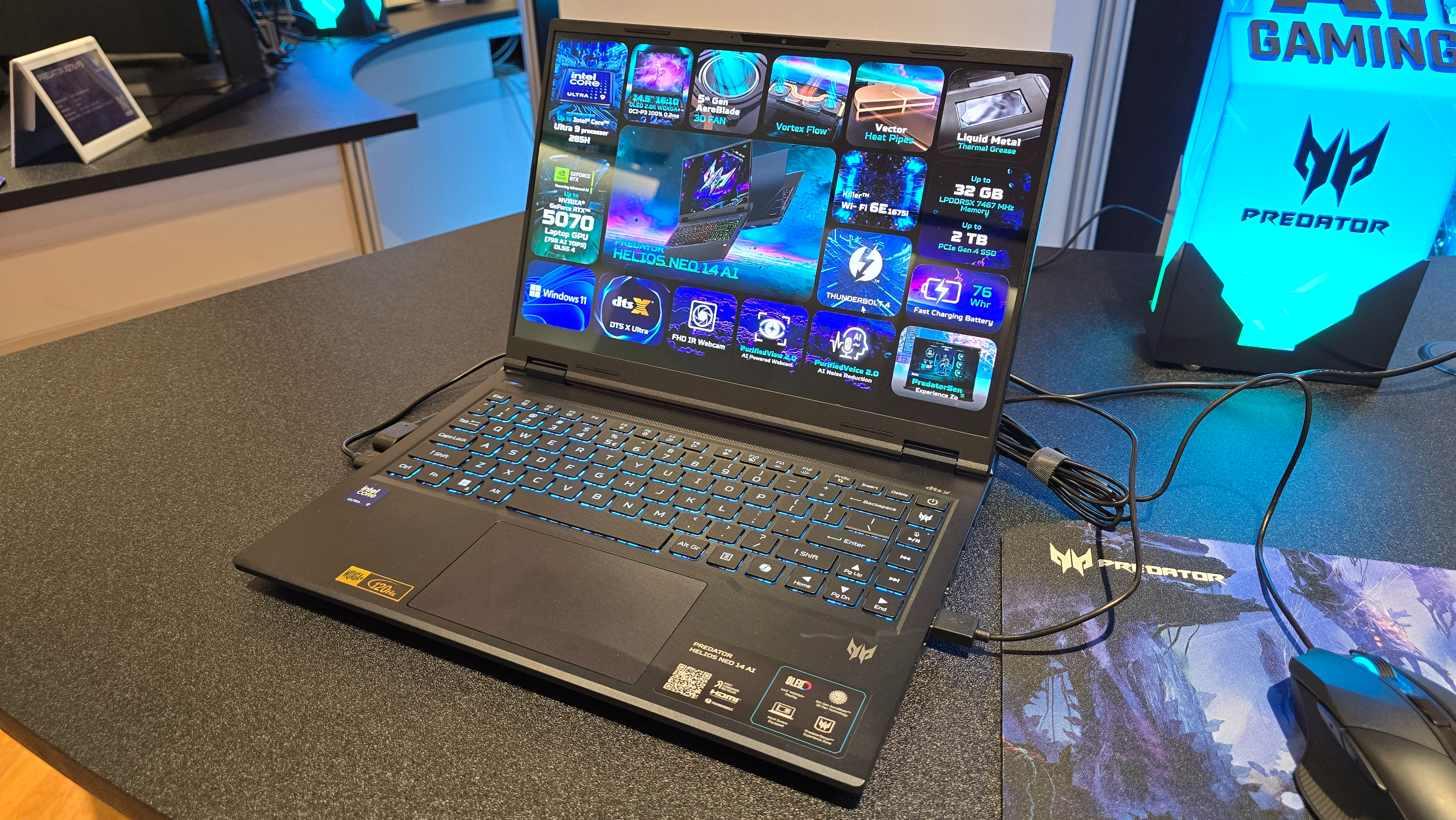
If you’re looking for something more portable, yet still powerful, than many gaming laptops, then the Acer Helios Neo 14 AI could be worth considering. It comes with up to an Intel Core Ultra 9 processor, 32GB RAM and an RTX 5070 GPU, which should mean it can handle modern PC games with relative ease, while its 14-inch screen (which can be configured with an OLED panel) helps keep the overall size of this laptop down.
As I mentioned in our Computex 2025 live blog when I saw this at an Acer roundup, I’m not too convinced how artificial intelligence will help with gaming laptops (outside of stuff like DLSS), but Acer has seen fit to put AI in the product name.
The metal chassis means the Acer Helios Neo 14 AI feels sturdy and robust despite its smaller size, and Acer’s own Aero Blade 3D fan design and heat pipes should mean that temperatures are kept down when playing games – which can often be tricky in smaller gaming laptops.
4. Gigabyte Aorus Master 16
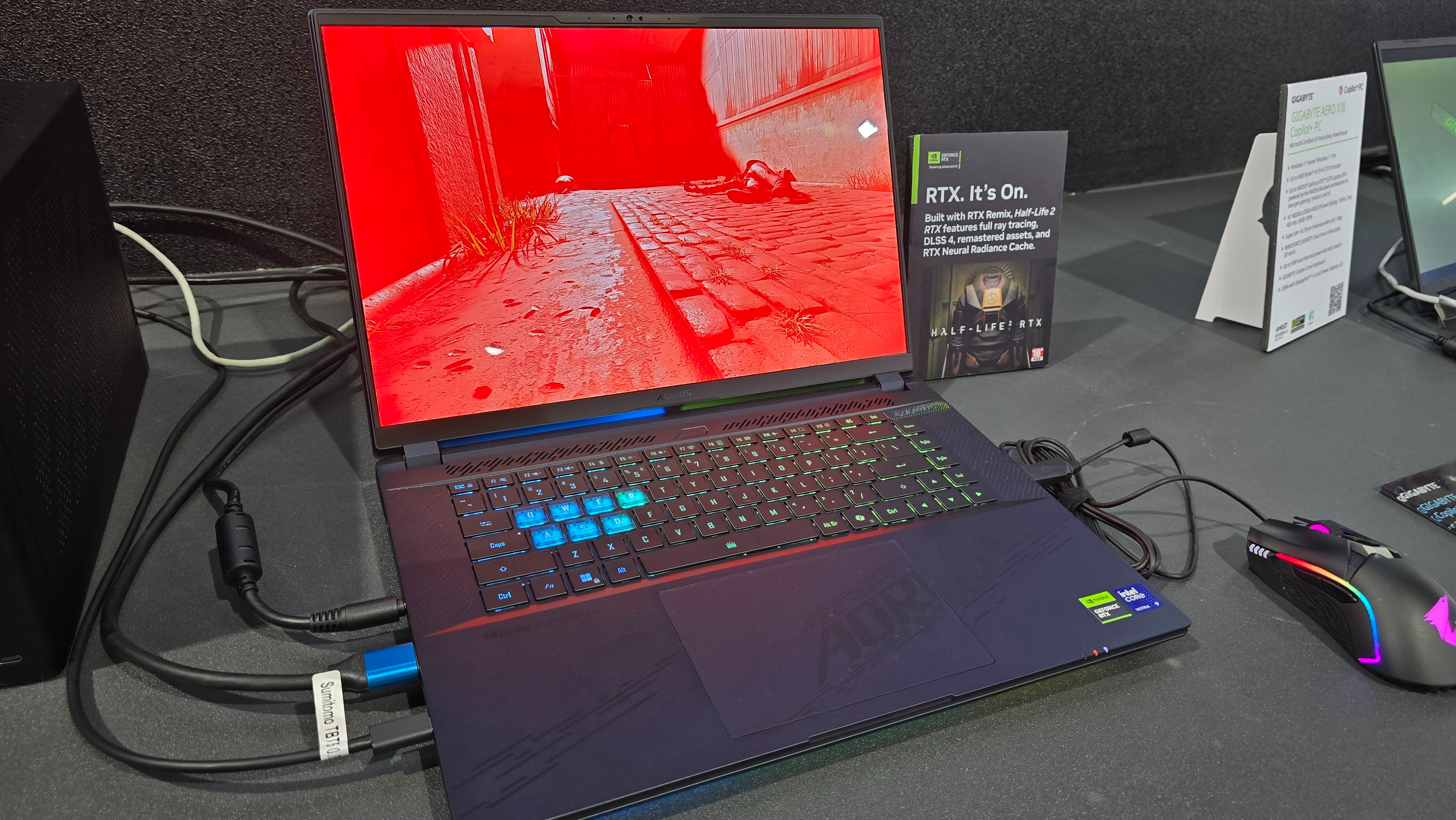
Gigabyte might not be the first brand you think of when considering a new gaming laptop, but I think that should change. For a few years now the company has been punching above its weight, and often shows up in our best gaming laptop list amongst more recognizable companies like Razer and Asus.
So, I always make sure I swing by the Gigabyte stand when I’m at Computex, and this year it was the Gigabyte Aorus Master 16 that caught my eye.
Specs-wise there’s a lot to love here, with an Intel Core Ultra 9 275HX processor, up to an RTX 5090 GPU and a great-looking 16-inch OLED screen with a super-fast 240Hz refresh rate. My only reservation is that the screen’s resolution is 2560 x 1600, which means the RTX 5090 configuration is major overkill – though it does mean you should be making use of that 240Hz refresh rate in even the most graphically-demanding games.
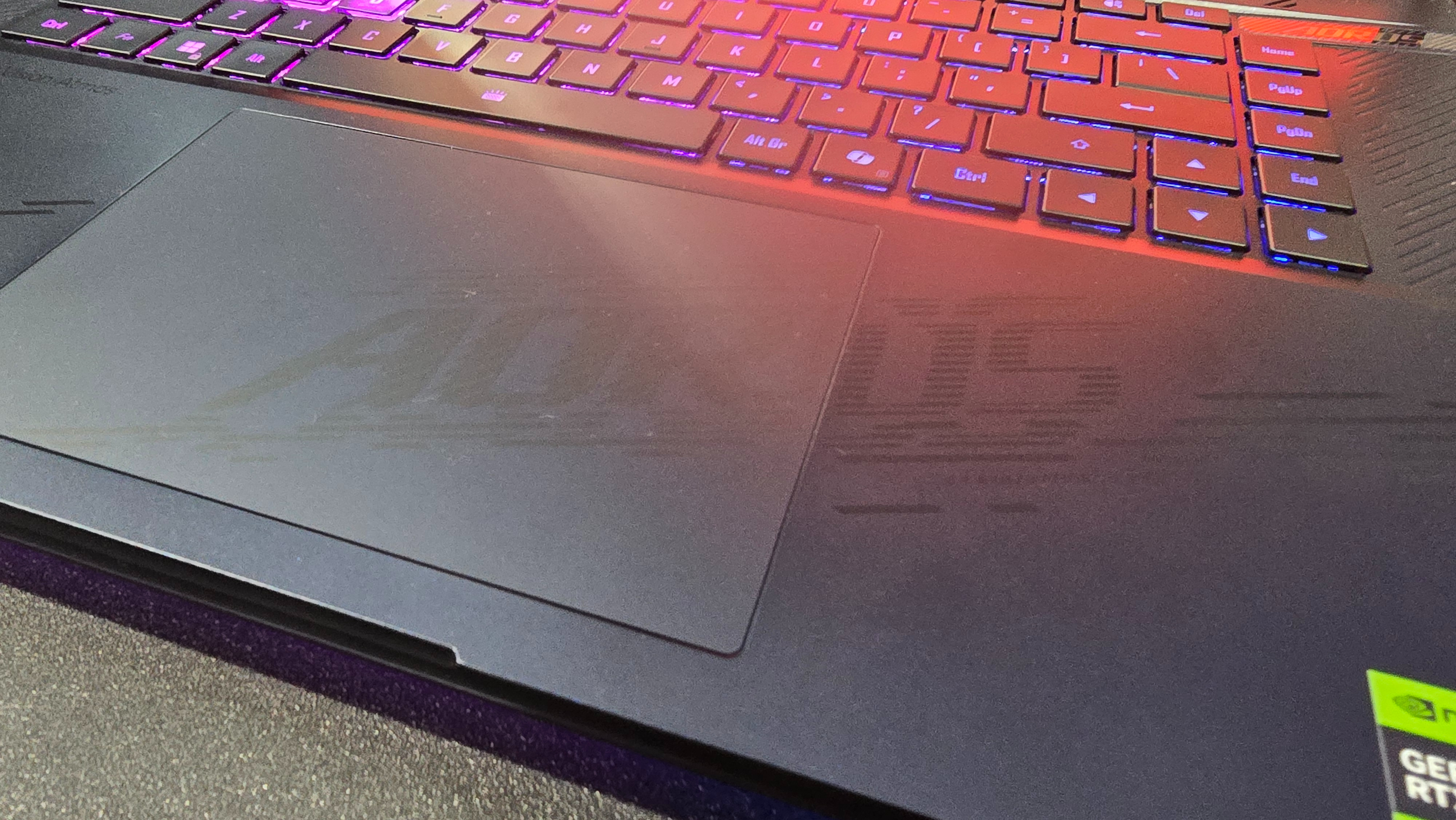
What I really like about the Gigabyte Aorus Master 16 is its design. Usually, Gigabyte laptops can be a bit plain, but the chassis of this laptop, with subtle patterns that spell out ‘Aorus’ makes it look like a stylish and premium gaming laptop that can rival Asus’ best-looking laptops.
5. Acer Predator Helios Neo 16S AI
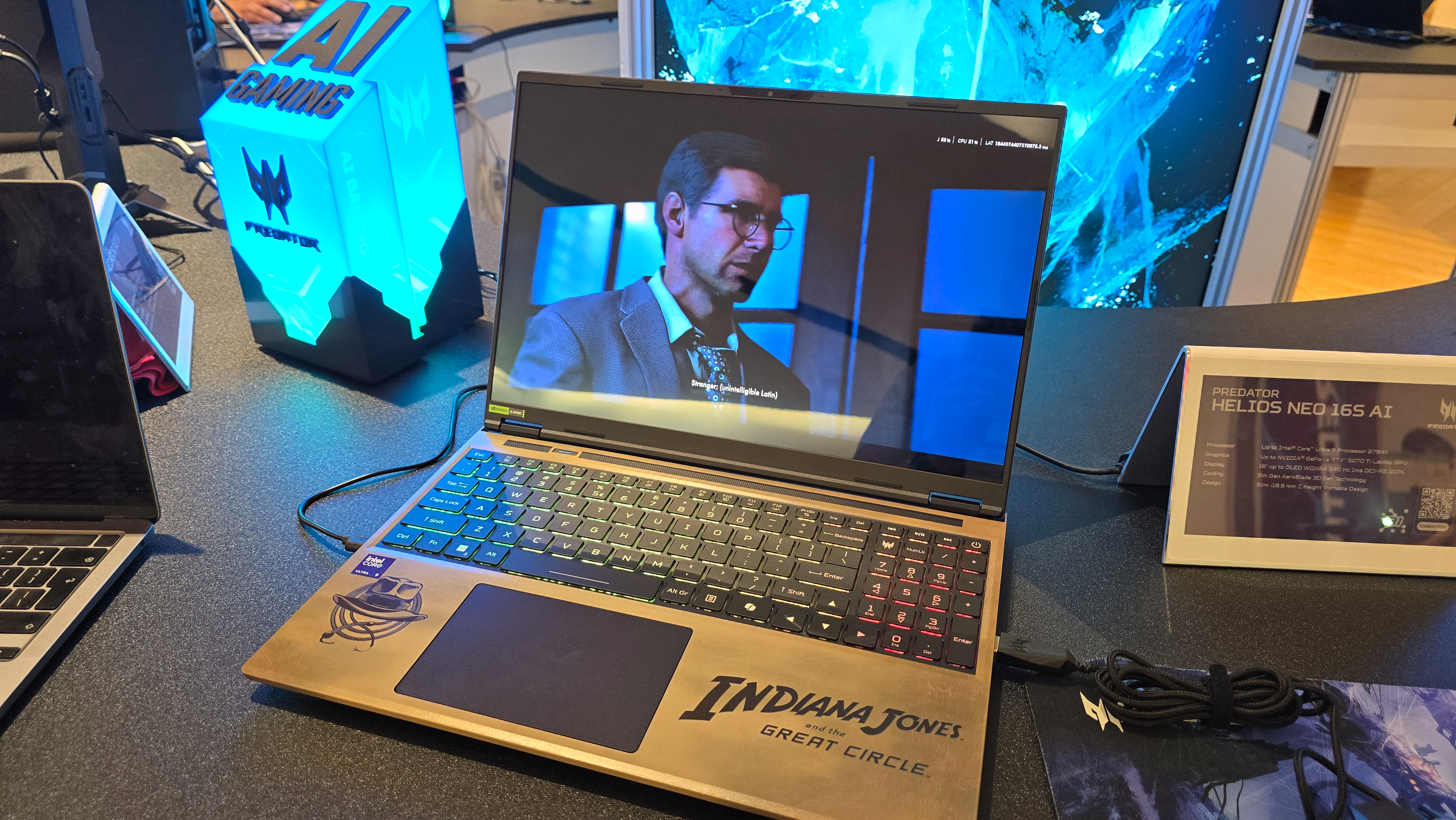
OK, I’m going to be honest: the thing that I really loved about the Acer Predator Helios Neo 16S AI that I saw at Computex 2025 was the Indiana Jones and The Great Circle theme. I loved the game, and while I’ve long since finished it, my love of the Indiana Jones franchise means I’d happily buy a laptop that featured Indy’s iconic hat and whip.
Performance-wise the Acer Predator Helios Neo 16S AI features an Intel Core Ultra 9 275HX processor, up to an Nvidia RTX 5070 Ti GPU and can be configured with up to a 16-inch OLED screen with 240Hz refresh rate.
The ‘S’ in the product name refers to the slim design, which is less than 18.9mm high with the screen closed, another nice example of a gaming laptop that isn’t big and bulky – especially impressive as its 16-inch screen means you don’t have to sacrifice immersion.
Stay tuned for our full reviews of each of these gaming laptops when they release.
- Check out our Computex 2025 hub for all the latest news out of Taipei.

Matt is TechRadar's Managing Editor for Core Tech, looking after computing and mobile technology. Having written for a number of publications such as PC Plus, PC Format, T3 and Linux Format, there's no aspect of technology that Matt isn't passionate about, especially computing and PC gaming. He’s personally reviewed and used most of the laptops in our best laptops guide - and since joining TechRadar in 2014, he's reviewed over 250 laptops and computing accessories personally.
You must confirm your public display name before commenting
Please logout and then login again, you will then be prompted to enter your display name.